I think it is a fair statement to say that most of us who have adopted internationally think that our child's birthparents made the decision to abandon their child. I have read many essays and poems where adoptive parents imagine the birthmother hiding in the bushes or watching until the tiny bundle is found. Perhaps that is how you imagine it to be as well. I know I certainly did, until I helped run a cleft mission where many of our patients were rural children with families. On that trip, parents told me one story after another that quite simply turned everything I thought I knew about abandonment on its head.
I want to share one of those stories today, as I have been thinking so much about my son's birthparents lately.
On this particular cleft mission, we had far more babies needing surgery than space available, so very sadly we were having to turn families away. We had set a weight requirement for the kids' safety, and we soon learned that parents were sewing rocks into their babies' clothing in the hopes that their kids would meet our 10 pound requirement. We also had begun turning away babies who were obviously younger than 5-6 months because we wanted to make sure the kids would do well under anesthesia.
I was sitting in the intake room one morning when an anxious young woman came running in holding a tiny bundle. I could immediately tell that the baby was a newborn, and I asked our Chinese director to break the bad news to the woman that the baby was far too young for surgery. As she was given the news, the young lady burst into tears and began pleading and begging to have her child be seen. My friend came over to me and told me that I needed to go and speak with the woman in private, and so I did. She pulled back the blanket to reveal a tiny baby girl with severe cleft lip. The mother told me that her daughter was 28 days old, and that their period of confinement was over in just 2 more days. As she was crying and talking, the mom kept kissing her baby's forehead, and she kept telling me again and again, "I love her....I love her so much."
But then she went on to tell me that her extended family would not accept her daughter since she had been born with a cleft lip. They felt this tiny baby would bring shame to them all. With tears streaming down her face, she told me that her mother-in-law was coming to take the baby away from her in two days' time. The mom was begging me to heal her daughter, to make her daughter beautiful, so that she could keep the baby that she had carried inside of her for 9 months….the daughter she loved completely. When I explained that the baby could not safely be put under anesthesia at four weeks of age, she fell on her knees and was sobbing at my feet, pleading and crying and begging me to help her. Right now...even typing this story....it brings a pain to my chest that I cannot describe.
Over and over on that trip, I heard stories from birthparents who adored their children with cleft, but who were told the children could not stay in the extended family. I met a woman whose daughter with cleft had been taken from her by her in-laws while she slept. She never saw her daughter again. She had come to our mission after reading about it in the paper, to thank us for giving parents a chance to keep their children.....a chance she herself did not have.
That trip changed everything for me about how I view birthparents in China. Many people give pat explanations about infant abandonment that cover the issue in blanket terms: “Babies are abandoned because rural families want sons.” “Babies are abandoned because the medical needs were too great.” Simple, one line sentences, to explain a personal life event that is often very complex.
When it comes to human life, and heartbreaking decisions…..abandonment and loss.....I have learned that there are rarely simple explanations. Every single one of our children faced a great loss in their lives, but the reality is…..we have no idea about the deep, personal stories of the people involved. We have no idea who made the decision that a child couldn’t stay in the family. We have no idea of the anguish, or sacrifice, or resignation experienced. It is easy to think it was a birthparent who lovingly placed the child by the orphanage front gate, but it could have just as easily been an in-law or an uncle who was given instructions by the head of the family to remove the baby from the home. Every child has their own unique story. It certainly hurts more, however, to think that any of our kids have birthparents like the woman I met on that very somber day.
There is still such a stigma surrounding children born with special needs, especially in the rural areas of China. For those of us parenting these amazing kids, the unknowns of their beginnings are very sad to think about, aren't they? Have you thought much about this issue? Do you normally think of a birthparent making the decision to leave a child? Or were you already aware that especially for children with special needs, many become orphaned to not bring shame to the family at large?
Amy
Wednesday, October 21, 2009
Subscribe to:
Post Comments (Atom)
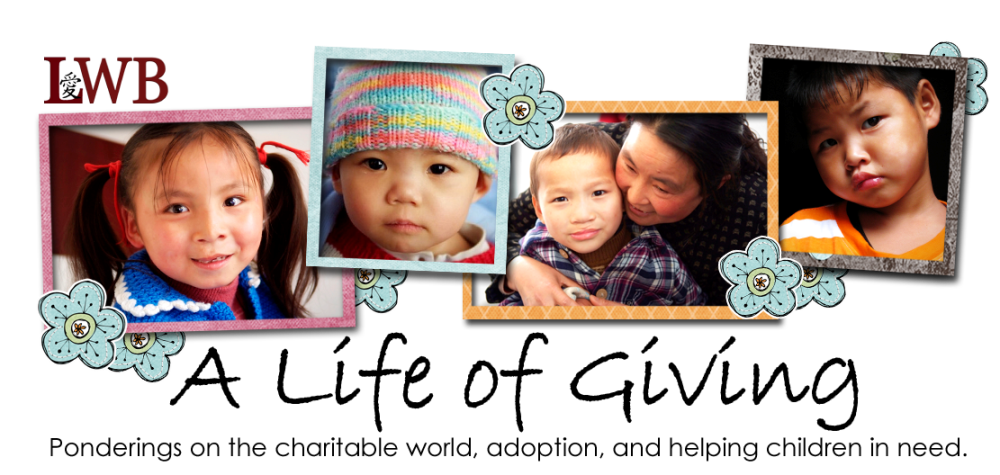
 Abandonment
Abandonment




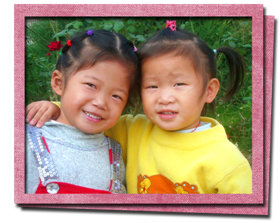
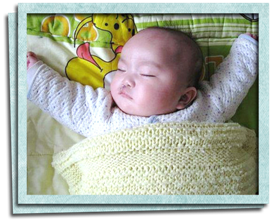
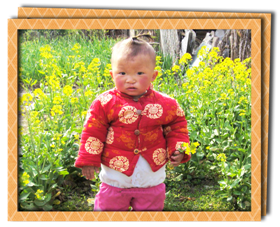
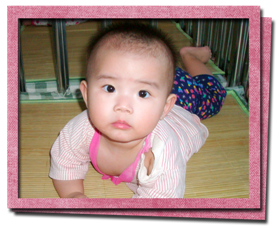
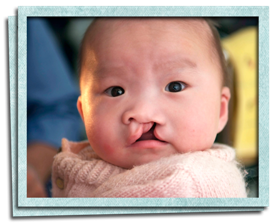
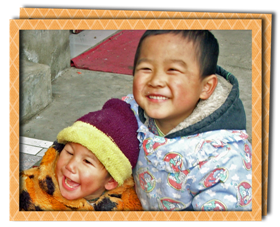
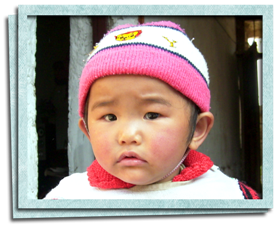
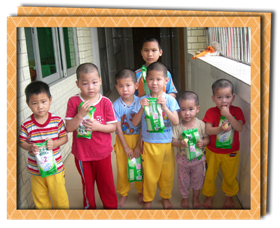
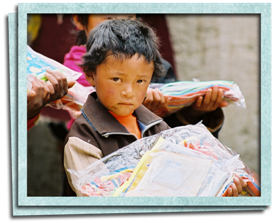


Wow Amy! What a powerful description of parental love and desire to make everything "right" with their children. I have thought of this abandonment issue often. My middle daughter was born missing fingers and with a shorter arm. At age 11, she keeps asking me if I think her birthmother was ashamed of her or didn't love her because she didn't have 5 fingers. Breaks my heart because I know this may be true - or true of her birth-grandparents. But now I have this incredible visual image of the parents you wrote about who loved their children despite of their differences, and I can share that with her. Thank you so much for this post today.
ReplyDeleteWhat a great eye opening story Amy. My daughter was NSN but I still often think to myself, why did they abandon her? It's so hard. Thank you for sharing.
ReplyDeleteI am sure you are right that we can never know the situations and reasons for the abandonment and it is so sad for all involved. Last week I read a book called "The Primal Wound" by Verrier that was so eye-opening...it talked about the deep hurt and grief experienced by adopted children and the birth mothers at the loss that is experienced by every adopted child, some within hours of the birth...the loss of their birthmother. It is really thought provoking...
ReplyDeleteMy son had a cleft lip and palate. He was abandoned when he was about a month old, a guesstimate since he had no note. I wondered if his parents tried to care for him and perhaps his needs were too great. Now I wonder if his extended family ordered his abandonment.
ReplyDeleteThese are very difficult things to think about but also very real. Our children deserve a more in depth understanding of WHY they left (age appropriate, of course), not some flip answers.
Thank you for sharing this...
ReplyDeleteI enjoyed reading this post very much and I've had the same things on my mind lately. My first Chinese daughter was born with a CL/CP and she was abandoned within the first 24 hours. From the first time I read that information I doubted she had been "left to be found" by her mother, within hours of giving birth! And that led me to wonder if not the mother, then who? And what did the mother feel about it?
ReplyDeleteMy curiosity continues......and I wonder if eventually, as the older generations die off, more birth parents will come forward. Perhaps the ones who felt family pressure to abandon their child or whose child was taken from them by a family member will find the strength to speak out. It is a small consolation, but I hope there will be connections made in the future and our children will have a chance to understand more clearly the complexity of what happened in the precious early days of their lives.
On the 06 Cleft mission I too came across a family - Granddad and daughter and baby granddaughter with cleft lip/palate. We too couldn't take her that day for surgery but I promised we would find the funds for her to be operated on when she had aged a little more.3 months later she got her new smile. 2 years after that I was privileged to visit with them in their home. Great grandmother was there that day too. Tears streamed down her face as she held my hand and thanked LWB. The Granddad described how it had been suggested to abandon his infant grandchild. He thumped his chest and said his heart was with his baby, he could not "throw her away". He painstakingly fed her by spoon as she could not suck the regular baby bottles.
ReplyDeleteAfter her surgery her Mother wrote of how now on Chinese new year she had finally introduced her baby girl to her extended family - what joy that had brought. Well I have to say, sitting in that humble apartment that day, the tears ran down my face as I felt their love and understood their hardship.
Thanks for posting this. Working with another organization similar to yours introduced me to many situations like this. It's good to let people know that China doesn't just want boys, or that China just wants healthy children. Children are wanted all over the world, but sometimes can't be kept.
ReplyDeleteAmy, what a beautiful post. It definitely makes you think outside the box of the traditional thought process for abandonment. My beautiful daughter Angel is cleft affected and she is the most wonderful little girl. I can't imagine our life without her.
ReplyDeleteBev
www.angelcomehome.blogspot.com
Thank you so much for sharing this experience and information. My husband and I are waiting to travel to China for our daughter with cl/cp. This gives me a better perspective on what could have been the circumstances surrounding her abandonment. Our youngest child is also from China, and she is truly a blessing!
ReplyDelete~ Cari
http://whereverheleadsus.blogspot.com/
A friend of mine from China once told me that it probably wasn't the mom's idea to abandon a child, it was usually the Mother-in-law's because she was the matriarch. I have twin girls from a very rural part of Anhui, and I wonder the pain their mother suffered, both in giving birth to them and in losing them with hours of their birth. No such decision could ever be easy and my heart hurts for that woman.
ReplyDeleteThank you so much for this post. I do not have an adopted Child but I taught English to adults in China for a year. Since then I have encountered the attitude that "Chinese abandon their babies" often here in the US. It's simply not true; there are very complex circumstances that prompt many families to give up their children.
ReplyDeleteI taught a small unit in my class about special needs; I showed the movie Radio and we discussed what value special needs people can bring to our lives. There were some very strong opinions shared in the class. Many of them were positive, which gives me hope that in the future these children can gain wider acceptance. Others were very negative, and looking back I cannot help but feel that there were perhaps some awful personal circumstances underneath those attitudes.
Thank you, Amy. My son was born with facial deformities (hemifacial microsomia, microtia/atresia, eye differences). I cried throughout your description of how difficult it can be to abandon a child - it's so easy to think that his birthparents were callous and just didn't want him...you've changed how I can think about them. He was left with hand-made yarn and clay red bracelets, and I've always wondered what that meant. Thank you for opening my heart.
ReplyDeleteAlyssa Ericksen
I have read this post, and the comments with it, over and over and over this week. Thank you for posting it and sharing another perspective on the story of our children's adoption journeys. It's taken me several days from my first read to process all the thoughts it evokes.
ReplyDeleteIt's because of potential scenarios like this (and the other more stereotypical, commonly accepted perceptions)that I have chosen with my husband to try our best not to romanticize our daughter's finding story. And to not put our own thoughts and feelings onto a woman and her family, when we know nothing about them. It will be hard, I have no doubt, to just share the bare-bones facts that we do have with our daughter, without embellishing at all.
But it is the right thing for our daughter. To just tell her what we know for sure about that day. And to be sure that she knows that she has a MAKER who knew her as He knit her. And that HE never left her, HE held her in HIS hands and HIS heart while events were worked ON HER BEHALF to come to us. That, we are MOST sure of in all of this.
Jeremiah 29:11 For I know the plans I have for you," declares the LORD, "plans to prosper you and not to harm you, plans to give you hope and a future.
Thank you for this post.... I came to this from another blog. This helped me see things from a different light and may help me understand our daughter a little more as she heals. Although she is not a cleft child... she does have special heart needs and was abandoned at age 3 in a hospital. I have often imagined that her birthmother didn't have the $$ for care and had no choice but to leave her there. Anyway you look at it abandonment is tough on the child and birthmom and then eventually on the adoptive parents. It breaks my heart that abandonment in most cases is their only option :(
ReplyDeleteThank you for writing about the subject of abandonment, from an understanding adoptive parents' perspective. As a natural mother who was forced to surrender my beloved son, I know the pain that a mother feels when she loses a child to adoption, and the further pain that she feels when society blames her as having "abandoned" an "unloved and unwanted child." I loved my son. He was my reason for living. I wanted to keep him, but at age 17 I had no power and no resources (and no knowledge that there were resources or that I had rights).
ReplyDeleteThe natural mothers in China and Korea who have lost infants to adoption, when I read interviews with them, I hear in their words and see in their faces the anguish, loss, and complete powerlessness I felt (and still feel). No choice, yet the word "abandoned" is used, but yet it would be just as appropriate to say I had "abandoned" my newborn, tied down to a delivery table, medicated out of my mind, with no choice as they whisked him away from me forever. This is why I speak up for those Asian mothers who are said to have "abandoned" their babies.
I wrote a blog post about "abandonment," at http://www.tinyurl.com/abndon (Or click on my blog link and go to the post "'Abandonment: A Disconnect in Adoption."
I did not abandon my baby. He was much loved and wanted and I had no choice. I hope that my post, reading my blog, shows that an impoverished Asian mother who is forced to surrender her infant, who had no choice, did not abandon her child either.